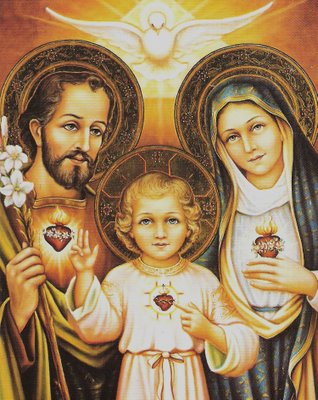St. Raymond of Penyafort
PRIEST, RELIGIOUS
Feast: January 7
From the bull of his canonization, by Clement VIII in 1601, and his life, written by several Spanish, Italian and French authors. See Fleury, b. 78, n. 55, 64, and chiefly Touron Hommes Illustres de l'Ordre de S. Domin. t. 1, p. I
The house of Pegnafort, or, as it is pronounced, Pennafort, was descended from the counts of Barcelona, and nearly allied to the kings of Aragon. Raymund was born in 1175, at Pennafort, a castle in Catalonia, which in the fifteenth century was changed into a convent of the order of St. Dominick. Such was his rapid progress in his studies, that at the age of twenty he taught philosophy at Barcelona, which he did gratis, and with so great reputation, that he began then to be consulted by the ablest masters. His principal care was to instil into his scholars the most perfect maxims of a solid piety and devotion, to compose all differences among the citizens, and to relieve the distressed. He was about thirty years of age when he went to Bologna, in Italy, to perfect himself in the study of the canon and civil law, commenced Doctor in that faculty, and taught with the same disinterestedness and charity as he had done in his own country. In 1219 Berengarius, bishop of Barcelona, who had been at Rome, took Raymund home with him, to the great regret of the university and senate of Bologna; and, not content with giving him a canonry in his church, made him his archdeacon, grand vicar, and official. He was a perfect model to the clergy, by his innocence, zeal, devotion, and boundless liberalities to the poor, whom he called his creditors. In 1222 he took the religious habit of St. Dominick at Barcelona, eight months after the death of the holy founder, and in the forty-seventh year of his age. No person was ever seen among the young novices more humble, more obedient, or more fervent. To imitate the obedience of a Man-God, who reduced himself to a state of subjection to his own creatures, to teach us the dangers and deep wound of self-will, and to point out to us the remedy, the saint would depend absolutely on the lights of his director in all things. And it was upon the most perfect self-denial that he laid the foundation of that high sanctity which he made the object of his most earnest desires. The grace of prayer perfected the work which mortification had begun. In a spirit of compunction he begged of his superiors that they would enjoin him some severe penance, to expiate the vain satisfaction and complacency which he said he had sometimes taken in teaching. They indeed imposed on him a penance, but not such a one as he expected. It was to write a collection of cases of conscience for the instruction and conveniency of confessors and moralists. This produced his Sum the first work of that kind. Had his method and decisions been better followed by some later authors of the like works, the holy maxims of Christian morality had been treated with more respect by some moderns than they have been, to our grief and confusion.
Continued at EWTN here.
7 months ago






























 "The poor do not need our compassion or our pity; they need our help. What they give to us is more than what we give to them."
"The poor do not need our compassion or our pity; they need our help. What they give to us is more than what we give to them."

































No comments:
Post a Comment
I welcome your comments, thanks for stopping by! :)